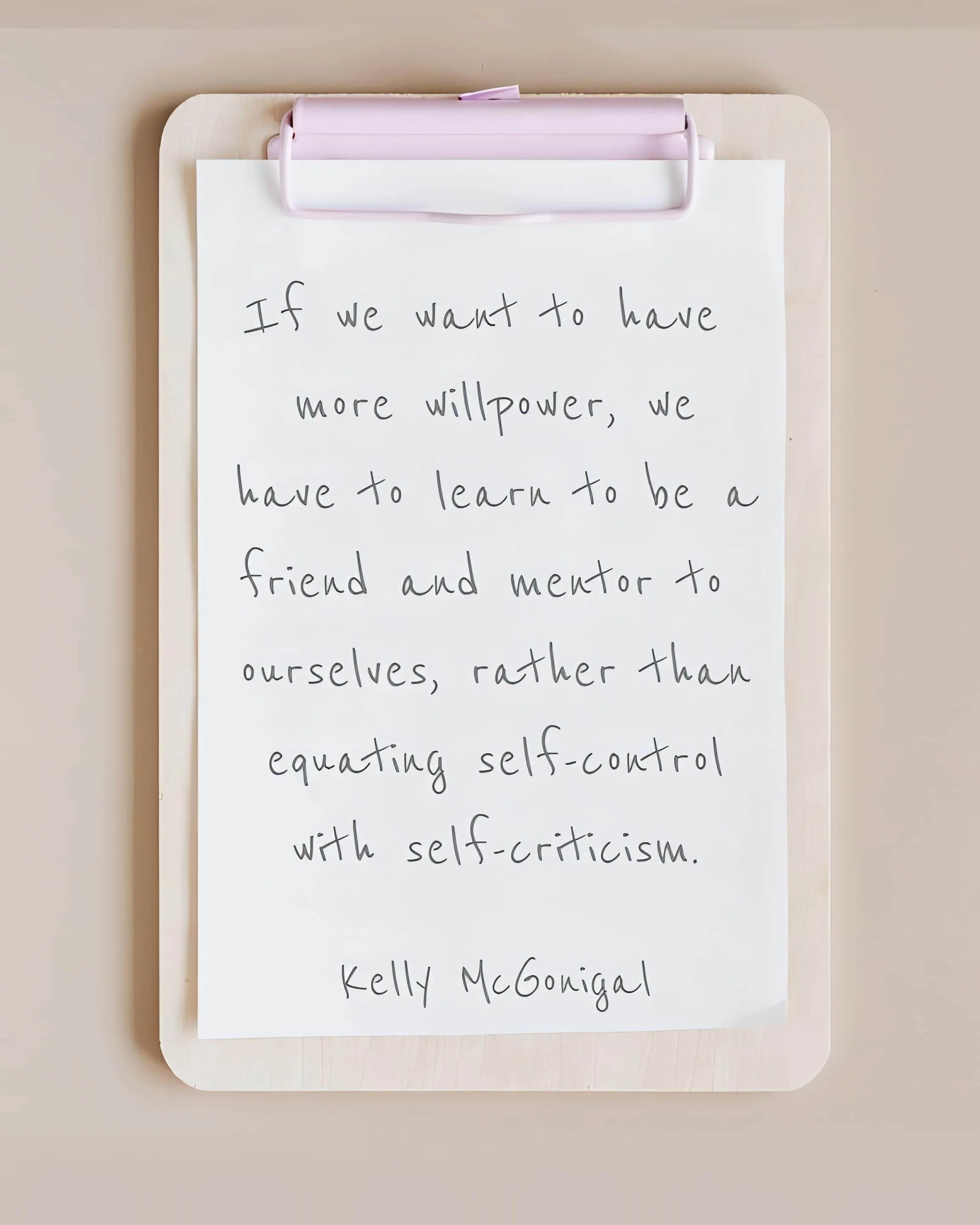Today's Friday • 12 mins read
— By Dr. Sandip Roy.
Have you stood in the kitchen staring at a tempting cheesecake, your mind battling with your fitness goals? Or, perhaps, lying in bed, social media seems more appealing than your looming deadlines?
It’s a universal struggle. We can’t seem to find self-control when we actually need it.
At its core, self-control, or willpower, is the ability to resist short-term temptations to meet long-term goals.
3 Takeaways:
- Self-control works better when we avoid temptations, not resist them.
- Moral self-licensing can justify bad behavior and chip away future self-control.
- Stress and fatigue can sap our willpower and make us give in to unwise choices.
10 Self-Control Secrets For Maximum Willpower
Willpower is a limited resource, much like a muscle with a quota of power in a given day. And there lies two issues:
- First, we can’t rely on self-control alone to get things done after having a hard day.
- Second, some people have more willpower and some people have average or less willpower.
But the good news is that self-control is not a fixed trait. Rather, it is a skill we can learn and strengthen, as shown by Baumeister & Vohs in The Strength Model of Self-Control (2007).
Read on to find out how to increase your self-control power.
10 Self-Control Secrets To Maximize Your Willpower
1. Have Pre-Set Routines For Your Triggers
Know your weaknesses and temptation-triggers. Note down the places, people, and situations that make you lose control and give in your default bad behavior.
Then set up routines in advance. These pre-set routines help you avoid mental dispute when you come across a bait to indulge in reckless behaviors.
Say, you make healthy food choices by default. But recently, you have many stresses at work. So, during breaks, and when you’re back home, you reach out for some junk food. And regret later.
A pre-set routine to bypass your stress-induced snacking could be to keep healthy snacks at your desk. And piling some ready-to-eat home-made food in the refrigerator.
2. Avoid Moral Self-Licensing
Moral Self-Licensing: When Being Good Gives Us Freedom to Be Bad
Moral self-licensing is the psychological tendency to justify indulging in questionable or “bad” behavior after engaging in good behavior. It’s a shortcut our brains take to justify bad behavior to feel morally okay, even when we’re not.
It’s like a mental balancing act: “I was good, so I can be a little bad now.”
So, when people feel they’ve earned moral “credits” through virtuous actions—like donating to charity or exercising—they might give themselves permission to act less ethically or responsibly afterward, such as splurging on junk food or slacking off on a commitment.
Research, like studies by Merritt & Effron (2010), shows this can undermine long-term goals by creating a cycle of self-sabotage.
Any time you feel like giving in to a bad behavior supported by moral self-licensing, stop. Instead, remember why you started your self-improvement journey. And recommit to those goals.
Anticipate challenging situations. Make a plan, like mentally rehearsing the words you’d say to resist giving in. If you think you might forget, write them down on paper to keep in your pocket.
3. Replace Self-Criticism With Self-Compassion
Self-improvement is always a gradual process that has many highs and lows. Don’t expect the journey to be smooth and perfect.
Remind yourself that setbacks are a natural aspect of progress, and treat yourself with kindness, patience, and self-compassion when things don’t go as planned.
Recognize that imperfection is part of the human experience – that’s what self-compassion teaches us. It can enhance your optimism and resilience.
When you replace self-criticism with empathy and encouragement, your progress will be faster, more linear, and less stressful.

4. Self-Discipline & Learning From Mistakes
Consistency in self-discipline, even after many successes or failures, is key to long-term willpower.
Instead of wallowing in regret, see mistakes as valuable feedback for improving your next strategy.
Mistakes = Feedback
Mistakes show you what went wrong and how to act wisely in similar situations. These wiser choices will then strengthen your commitment to well-being.
When your willpower is high, it’s easier to disregard the unsavory trends around you and make healthy choices.
When you walk into a late-night party, you’re often low on willpower. This is when you tend to give up on your health goals to indulge in smoking or drinking, and then feel guilty later.
So, if you have to be in social situations that may tempt you into unhealthy behaviors, save your willpower during the day.

5. Let Your Values Point Toward Your Goals
Write down 5–6 values that resonate with your sense of purpose in life.
These values are ones that no one can make you turn your face away from. These principles truly matter to you, no matter what life gives you.
Let these steer your daily choices. When your choices and actions reflect your core values, they become a robust motivator in and of themselves.
They keep pointing steadfastly in the direction of your goals. So it gets easy to maintain your willpower in the pursuit of goals.
Another related way is to divide your big goals into smaller, more achievable tasks. This prevents you from getting discouraged when you see you have to meet big goals.
Smaller goals and smaller triumphs have big motivational powers. Embrace and celebrate each of these victories—no matter how little they may seem.
They collectively build the momentum and compound into substantial, meaningful progress.

6. Build A Supportive Social Circle
Surround yourself with individuals who inspire and encourage your best self.
The influence of peers can be undeniable; when you surround yourself with disciplined individuals, their habits can reinforce and discipline your own willpower.
Communal support creates a nurturing space for everyone’s endeavors, not just the collective willpower, to grow by networking.
Moreover, a supportive social circle acts as a sounding board for your ideas and challenges, offering wisdom and perspective that can enhance your journey toward self-improvement.
7. Practice Mindfulness Meditation
Use meditation to strengthen your mental muscles for focus, providing a buffer against impulsive actions.
Regular meditation cultivates a mindfulness that can permeate all aspects of life, enhancing your decision-making processes.
8. Don’t Negotiate On Sleep & Exercise
Prioritize sleep as the fundamental pillar of your mental, emotional, and physical health.
If you are chronically sleep-deprived, it can undermine even your high intellectual prowess and your strong resolve.
Sleep is a non-negotiable for replenishing your mental resources so that you can face challenges with renewed grit and willpower. So aim for a restful and consistent sleep schedule.
Exercise is a keystone habit that can send positive ripples through other areas of life, like sharpening your mental fortitude and reinforcing your willpower.
So, exercise at least 30 minutes a day for at least 5 days a week.
9. Learn How To Relax Your Body & Mind
Integrate relaxation practices into your daily routine to reduce stress and prevent decision fatigue. These moments of calm can serve as a reset, giving you clarity and renewing your willpower for future temptations.
10. Stay Aware of Social Proof
Recognize the influence of others’ actions on your behavior and consciously choose a healthier path. By being aware of this phenomenon, you can seek out positive role models and environments that reinforce your willpower.

Summary of “The Willpower Instinct” or “Maximum Willpower”
The book Willpower Instinct (Maximum Willpower) gathers scientific insights into self-control from psychology, economics, neuroscience, and medicine. Author Kelly McGonigal shows how we can:
- replace our bad habits with healthy ones,
- hack our procrastination habit, and
- handle negative emotions.
“Self-control is a better predictor of academic success than intelligence, a stronger determinant of effective leadership than charisma, and more important for marital bliss than empathy (yes, the secret to lasting marriage may be learning how to keep your mouth shut).”
— Kelly McGonigal
1. Willpower consists of three forces: I will, I won’t, and I want.
The strength of our willpower consists of three forces: I will, I won’t and I want.
- “I won’t” power is the ability to say no even when you want to say yes. This is simply the ability to resist temptation. Each temptation is an “I won’t” willpower challenge, asking if we have the strength to say No.
- “I will” power is the ability to do what you dislike now for a better future. “I will” power helps take up and complete those tasks that are necessary to achieve your goals, but are cumbersome or unpleasant.
- “I want” power is the capacity to remember what you truly want. Regardless of current temptations, what you actually want is what is best for you in the long run. To fight the present, you must have clear long-term goals to guide your daily actions. This boosts your “I want” power by reminding you of what’s at stake.
Willpower is about harnessing all three of these powers – I will, I won’t, I want – to reach your goals and avoid trouble.
People who have better control of their attention, emotions, actions, are better off at almost any way you look at it.
— Kelly McGonigal
2. Willpower is a biological instinct to protect us from long-term harm.
Our body’s fight-or-flight system is an instinct that sets off when we come across a life-threatening situation. It gives our body the ability to spend all of its resources to get us out of harm’s way.
Then there is the pause-and-plan reaction, and it is substantially different from the fight-or-flight response:
- The fight-or-flight response raises your awareness of an exterior threat and increases your pace (like avoiding the snake).
- The pause-and-plan response moves your focus to the internal dispute between your rational and impulsive sides and slows you down to help you control your impulses.
Willpower is founded on a biological instinct. When we face a threat to our lives, we gather immense willpower to fight or escape it. When we see a cookie but want to avoid eating it, the pause and plan response springs into action.
To say No when you need to say no, and Yes when you need to say yes, you need a third power: the ability to remember what you really want.
— Kelly McGonigal
3. Mindfulness meditation can increase self-awareness and self-control.
When our minds are busy, we run low on willpower. When your mind is distracted or preoccupied, it is easier for the immediate temptation to overwhelm your long-term ambitions.
There is a practical and accessible solution to deal with distractions: Mindfulness Meditation.
Neuroscientists have found people who regularly meditate have more gray matter in their brain regions responsible for self-awareness. So, there is an organ-level change that reflects positively on our attention and higher levels of performance.
Scientists have discovered only three hours of regular meditation can increase self-control and create a longer attention span. And after 11 hours of practice, the gray matter changes in the brain are already visible.
To exert self-control, you need to find your motivation when it matters. This is “I want” power.
— Kelly McGonigal
So, there are two takeaways here:
- Whenever you are in such distracting situations, avoid making important decisions.
- Develop self-awareness through mindfulness meditation, and avoid willpower failures.
4. What happens when we yield to a bad habit?
When we turn slaves to a terrible habit, we react by either:
- feeling guilt and regret, or
- exhibiting the “what the heck” effect.
In either case, we are more likely to succumb to that temptation again. When that happens, it is much worse than the first time. This makes the whole self-control process shaky, and we get primed to lose control again.
Fortunately, there is a way to break the cycle: Forgive yourself (learn here how to do it).
“We think about our future selves like different people. We … expect our future selves to do what our present selves cannot manage. (But) The future you is just as you as you are right now.”
What The Hell (WTH) Effect & Moral Self-Licensing
We’ve all heard of the diet trap known as the “what the hell effect.” “I already ruined my diet today with that ice cream, so WTH, I might as well eat the whole pizza,” it goes.
Moral licensing is justifying being bad because we already did something good. You may justify your overeating (perhaps a giant pizza) at dinner because “I just ran eight miles, so I deserve this.”
The solution: Reassure yourself, one miss does not have to derail the entire project. And treat yourself with self-compassion, so that you find it easy to get back into your good habit routine.
5. Willpower is Contagious
Good and bad behaviors spread across social networks.
Obesity spreads through social networks, and if a person’s friend becomes obese, their chances of becoming obese increase by 171%.
Willpower and self-control behaviors are transmitted across social networks, just like obesity-causing behaviors are.
If you hang out with people who are setting goals and overcoming willpower challenges, you are more likely to join in and succeed.
Goals are contagious, and spending time with the right people can boost your willpower.
Final Words
A few insightful words from Kelly McGonigal in an interview on the TED blog:
One of the big lessons from the science of willpower is if you really fight the inner experiences, it’s not going to end well. If you decide you’re going to fight cravings, fight thoughts, fight emotions, you put all your energy and attention into trying to change the inner experiences.
People tend to get more stuck, and more overwhelmed. When you try to control the things that aren’t really under your control, you get to feeling more out of control. Whereas where you really have the freedom is in your choices.
√ Also Read: 12 Unwritten Rules For A Successful Life
√ Please share it with someone if you found this helpful.
» You deserve happiness! Choosing therapy could be your best decision.
...
• Disclosure: Buying via our links earns us a small commission.
